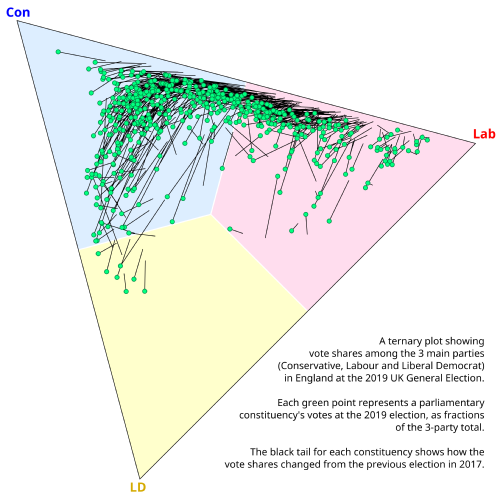News
David Firth awarded Leverhulme Emeritus Fellowship
Professor David Firth has been awarded a Leverhulme Emeritus Fellowship, to support his research in the next two years on a new project, ‘Compositional data analysis via statistical modelling.’ David’s methodological work will underpin a growing style of data-analytic activity that spans fields as diverse as archaeology, food science, horticulture, machine learning, microbiology, physical sciences, social science and sport.
David describes the project as follows: 
Analysis of composition is found in almost every branch of science and across a wide range of data-centric social science and humanities research. The composition of a multi-part entity is a quantitative description of how large its parts are relative to one another; most often, a composition is represented by a set of percentages that sum to 100%. Just a few examples are: the vote shares for different political parties in an election; the percentages of different minerals in rock samples; the relative prevalence of different microbes in the gut of an animal; and the ways in which people spend their time, e.g. fractions of the day that are spent sleeping, working, sedentary, physically active, etc.
The research literature on this topic has been dominated for the last forty years by a mathematical framework set out in John Aitchison’s highly influential 1986 book The Statistical Analysis of Compositional Data. Aitchison’s axiomatic development results in the so-called ‘logratio’ method, whereby a specific mathematical transformation of the data must be applied before any further analysis. The required transformation distorts the analysis, though, in undesirable ways: the smallest parts dominate; zero-valued parts are not permitted at all; and interpretation of the results of the analysis is often more difficult than it needs to be. These important practical limitations are a high price to pay for the logratio method’s mathematical coherence.
The solution is to relax Aitchison’s axioms to allow statistical modelling of the data directly without transformation. The full modern statistical toolkit then becomes available through models that account properly for measurement and sampling errors and are straightforwardly interpretable. This is the essence of my project.
My first experience of analysing compositions came about twenty years ago when I worked with the psephologist John Curtice to develop a new, accurate method for exit-polling at UK general elections. Our method – which has enjoyed success at every general election since 2005 – uses data from a specially designed exit poll to predict the political shift in each parliamentary constituency, from the previous election to the current one. [For details see https://warwick.ac.uk/exitpolling.] The image above shows the shifts in vote shares for the three main parties in England between the 2017 and 2019 elections. The task is inherently compositional, and our method of analysis uses statistical models that are carefully designed to be easily interpreted by political commentators. Freedom from the strictures of the logratio approach has been central to our method’s success.
Image credit: David Firth. Licensed under CC BY 2.0.
Seminar Series:
- ABC World Seminar
- Algorithms & Computationally Intensive Inference Seminar Series
- Applied Probability Seminars
- Maths and Statistics Teaching and Learning Seminar
- Probability Seminar
- RSS West Midlands Group
- RSS discussion papers pre-meetings
- Statistical Learning & Inference Seminars
- Stochastic Finance @ Warwick Seminar Series
- Warwick R User Group
- Young Researchers Meeting
